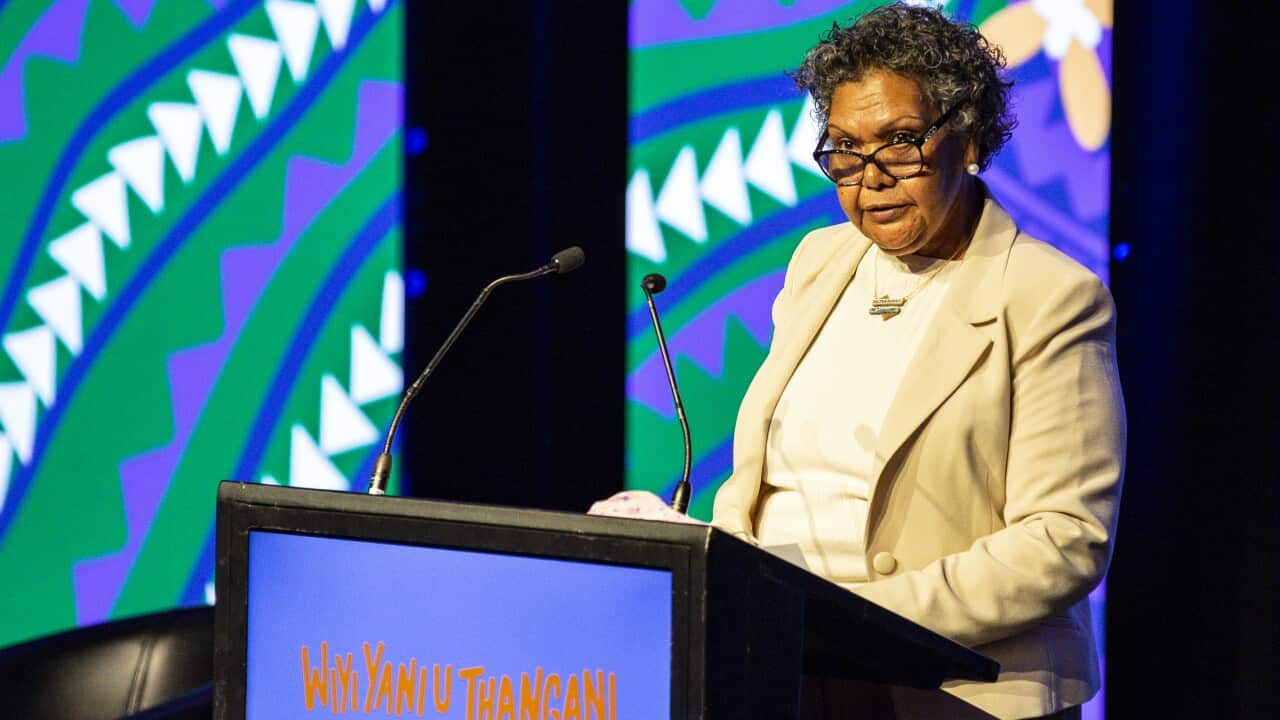A new National Framework for Action and a dedicated First Nations Gender Justice Institute is set to be established at the Australian National University.
Development of the framework has already commenced and is being led by the Human Rights Commission’s Aboriginal and Torres Strait Islander Social Justice Commissioner June Oscar AO.
“It’s the first time in this country that we will have a dedicated, independent, autonomous, First Nations gender justice institute that will include research conducted in communities driven by First Nations women and their partners on the issues that matter,” Commissioner Oscar told NITV News.
“These two new initiatives – the framework and the institute – will play a vital role in ensuring the interests and aspirations of First Nations women and girls are put front and centre as we move forward towards a better future in this country.”
How it will work
The new measures are the outcomes of the Wiyi Yani U Thangani National Summit – meaning 'women’s voices' in the Bunuba language from the West Australia Kimberly region – held in nation’s capital this week.
First Nations women and girls from across the country converged on Ngunnawal and Ngambri Country to design how the framework and institute look and function.
That work was conducted through more than 50 sessions and events by over 70 speakers and presenters over the course of the summit, which ran from Tuesday to Thursday, with an extra day of workshops held at the Youth Summit on Monday.

Speakers at the Wiyi Yani U Thangani (Women's Voices) National Summit. Credit: Jillian Mundy
“The institute will definitely give agency to helping people work within their communities but also importantly, people will feel empowered about having those conversations in communities, and not just conversations but action,” Ms Deshong said.
In attendance were many prominent First Nations women who have dedicated their life’s work to improving outcomes for their communities.
Among those was Birri Gubba and Juru woman Jackie Huggins, who said it’s been a rewarding experience.
“There's nothing like being in a room full of women together, discussing issues, working out solutions, and you know, really being able to come together,” she said.
Key recommendations

The crowd at Wiyi Yani U Thangani (Women's Voices) National Summit. Credit: Jillian Mundy
The recommendations included a centering of First Nations voices, a recognition of culture's importance for health and wellbeing, and support for all First Nations people "in all their diversity, including sistergirls and transwomen, non-binary people, children and people with disability."

Participants of the Wiyi Yani U Thangani National Summit in Canberra. Credit: Jillian Mundy
A voice for youth
The youth delegation – made up of 150 First Nations women aged between 18 and 29 – delivered a separate statement, highlighting issues they want to see action on.
The key issues raised in the Youth Statement were “social and emotional wellbeing, education, access to services in rural and remote areas, domestic and family violence, climate justice, financial independence and education,” youth delegate Georgia told NITV News.
“These were certain issues that were in our communities across Australia.”
For Commissioner Oscar, it was a moment of inspiration.
“I know we’re in safe hands when we listen to the communique from the youth and we hear their thoughts, full of emotion but determination,” she said.
The Human Rights Commission plans to have the Framework endorsed and implemented by community, government and other stakeholders within 12 months.
The Institute is expected to launch within the same timeframe.













